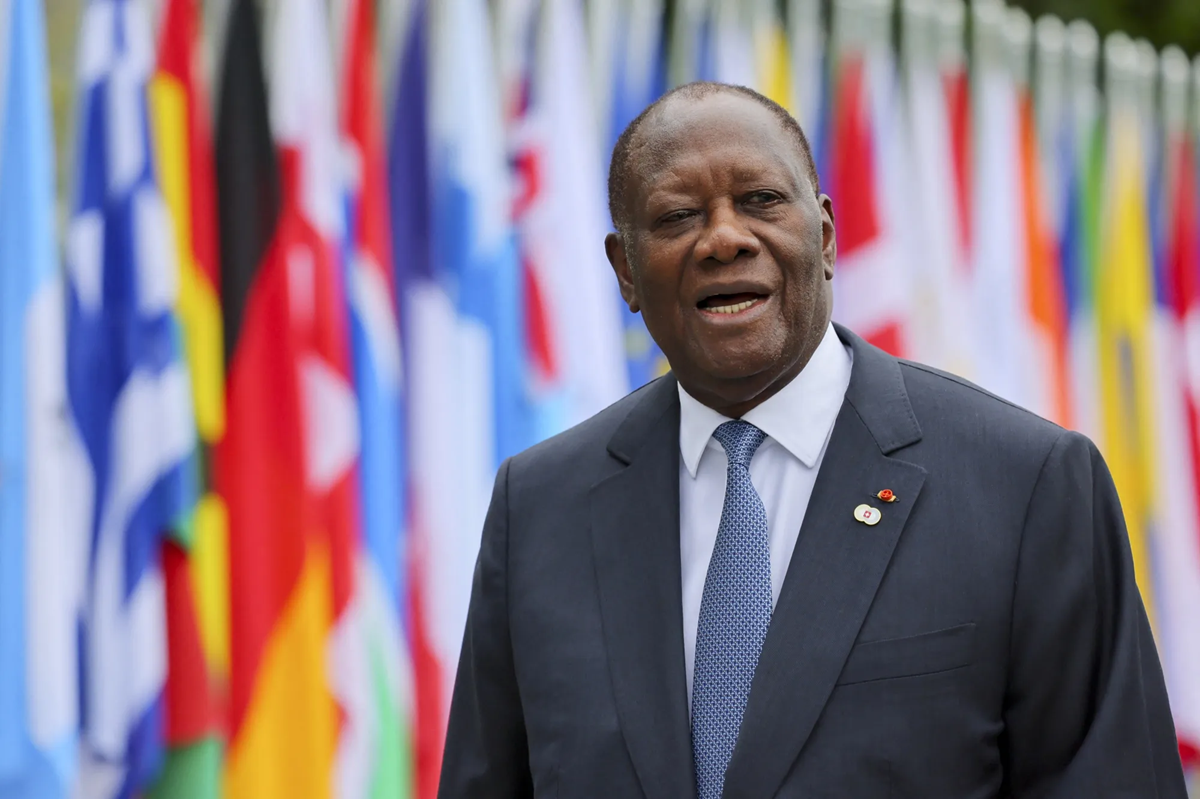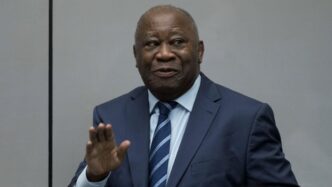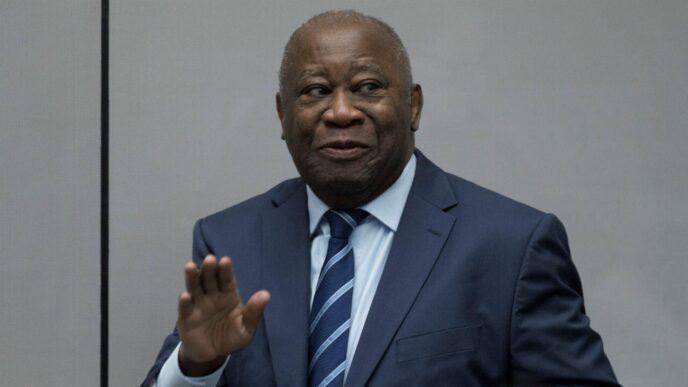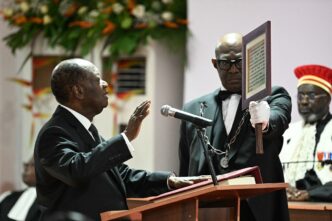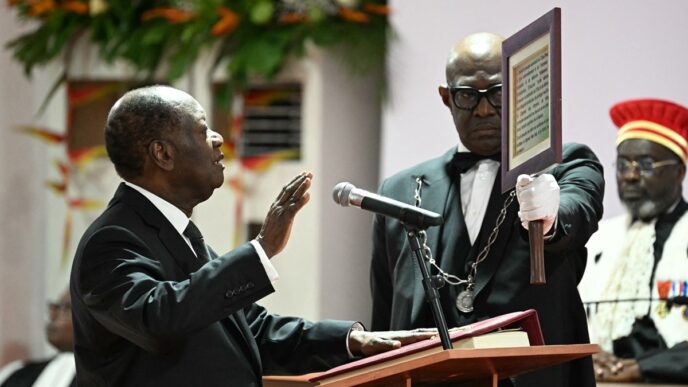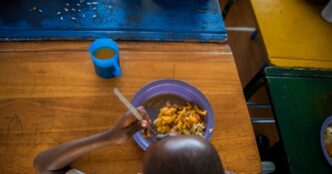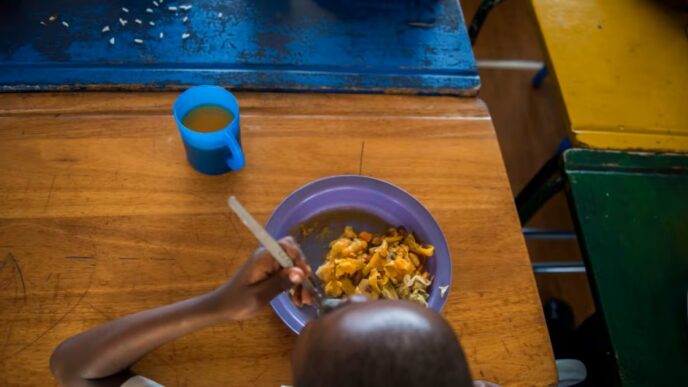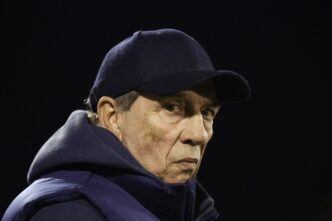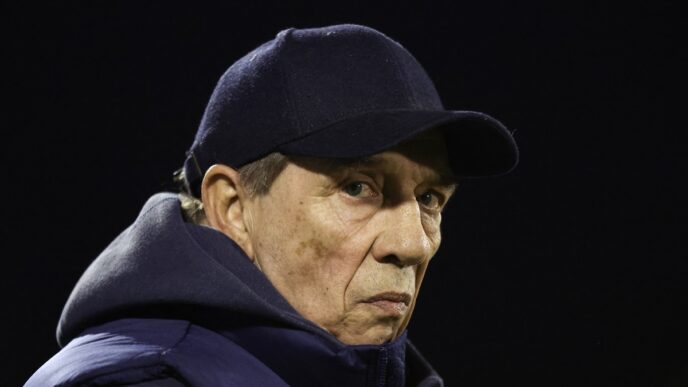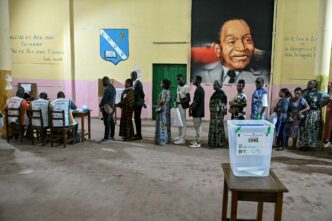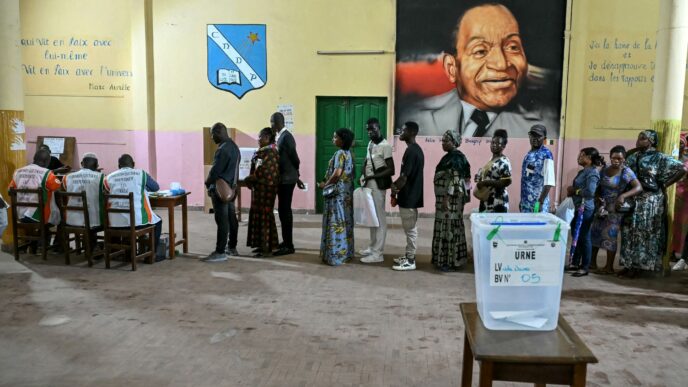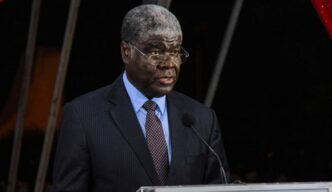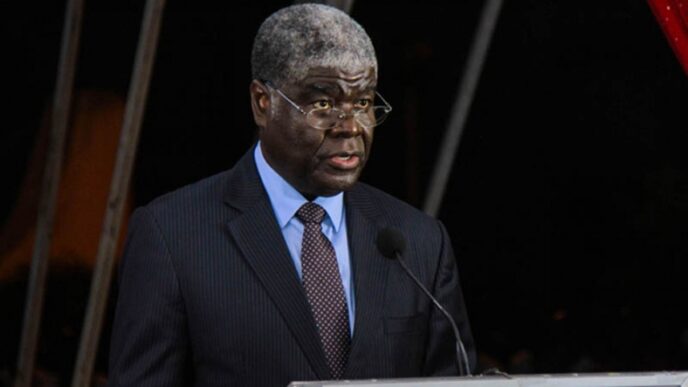Ivory Coast’s incumbent leader Alassane Ouattara, aged 83, has secured a fourth term in office, claiming a dominant 89.77 percent of the vote in an election where his two strongest challengers were kept off the ballot, according to the electoral commission’s announcement on Monday.
One of those blocked candidates, former high-profile international banking executive Tidjane Thiam, denounced the outcome, insisting the vote did not amount to a “true election” and urged his supporters to “peacefully win back democracy”.
Close to nine million registered voters were eligible to participate in Saturday’s poll in the world’s largest cocoa-producing nation. Though the country has largely avoided the coups and extremist violence troubling other parts of West Africa, political tensions escalated sharply ahead of the vote, sparking deadly clashes.
Even before the provisional tally was released, Ouattara’s win appeared assured. Early figures on Sunday showed him comfortably above 90 percent, especially in his northern heartlands, where turnout reached near-total participation.
He also posted strong numbers in regions that traditionally favour the opposition, including the southern districts and several neighbourhoods of Abidjan, despite many polling stations seeing minimal voter presence.
Entrepreneur Jean-Louis Billon finished far behind with 3.09 percent, said the commission’s president, Ibrahime Kuibiert Coulibaly. He confirmed turnout at 50.1 percent, a rate similar to 2020, when Ouattara captured 94 percent of the vote in an election widely boycotted by opposition figures.
This time, however, his most prominent rivals, ex-Credit Suisse CEO Thiam and former president Laurent Gbagbo, were both excluded from standing. Thiam was barred over his French nationality status while Gbagbo was disqualified due to a past criminal conviction.
“Their absence, their calls not to participate in the election, and the climate of tension that deteriorated in recent days foretold a significant demobilisation of the electorate,” said William Assanvo of the Institute for Security Studies (ISS).
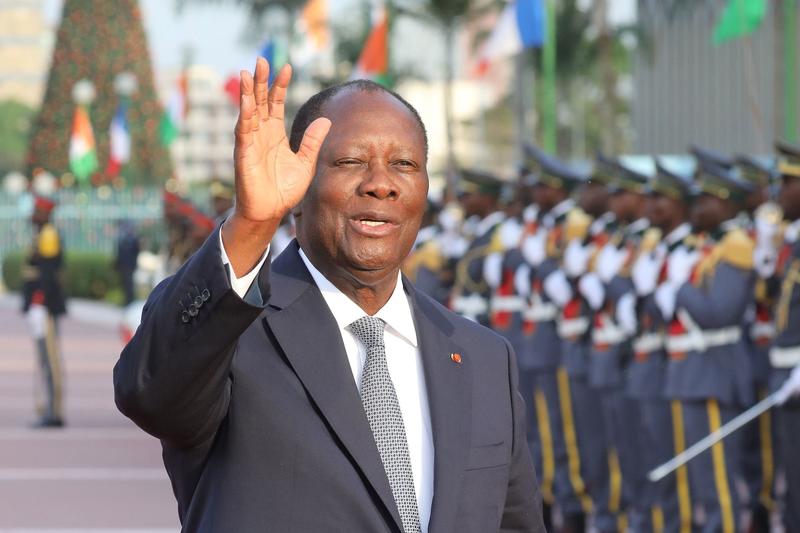
Opposition parties have dismissed Ouattara’s mandate and are demanding a fresh vote.
Thiam noted that the process had “divided” the country and appealed for calm after the results were made public. “It’s never too late for dialogue,” he said.
Former first lady Simone Ehivet Gbagbo, who was allowed to run and received 2.42 percent, criticised the official turnout figure as “inexact”.
Political analyst Geoffroy Kouao said the turnout revealed two key dynamics. “First, Mr Ouattara’s supporters turned out in force, as shown by the Soviet-esque results in certain regions. And second, supporters of the (Gbagbo and Thiam’s parties) did not go to the polls.”
Billon also raised alarm on Sunday over “very low turnout in some regions”, though he still offered congratulations to Ouattara.
He and the remaining candidates on the ballot were never realistically in contention for a runoff, lacking the backing of established political machines or substantial funding.
Calls for protests by major opposition groups led to violence leading up to the vote. At least eight people have been reported killed this month, and nearly two dozen injured in clashes at around 200 polling stations on election day.
Authorities responded by imposing nighttime curfews in parts of the country and deploying 44,000 security personnel.
Elections in Ivory Coast have long carried the risk of instability. Ouattara first rose to power after a bitter post-election crisis against Laurent Gbagbo in 2010-2011, a conflict that claimed more than 3,000 lives.
By Monday, daily life in Abidjan had largely resumed, after the commercial capital had been eerily quiet during the weekend.
“The Ivorians said NO to prophets of doom,” declared Patriote, a pro-government newspaper, celebrating what it called “a calm election”.
The opposition newspaper Notre Voie painted a contrasting picture, describing “an election reflecting a divided country.”


 Trending
Trending 
